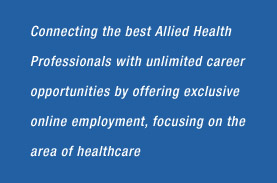



 |
||
 |
 |
|
 |
||
| Resume Tips | ||||||||||||
|
Realistically, the resume is aimed at securing you an interview. A brilliant resume may not win you the coveted position but a bad resume can prevent you from getting to the interview stage. |
|
|||||||||||
| So do spend some time preparing a document which will immediately catch the prospective employer's attention - you won't get an interview if your resume doesn't stand out from the others. | ||||||||||||
| Often, most people's resumes are more detailed than they need to be. Keep a simple uncluttered format as it is easy to read and source the relevant information. Use appropriate spacing and always use a laser printed resume if sending a hardcopy. | ||||||||||||
| Do your research into the position / employer as you would want to highlight your relevant skills and previous experience directly relating to the position. | ||||||||||||
| Generally, the resume should be structured in this form: | ||||||||||||
|
||||||||||||